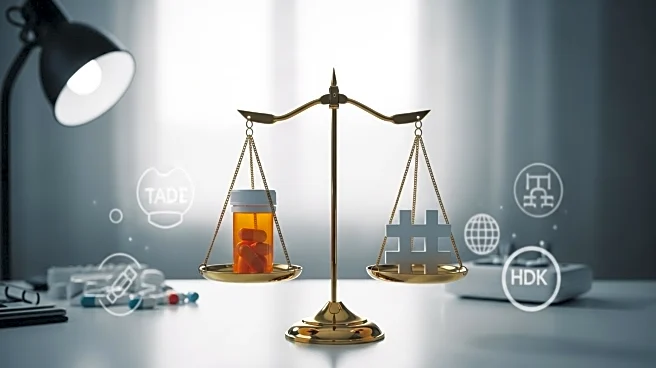What is the story about?
What's Happening?
President Trump has announced a deal with Pfizer that aims to lower the prices of certain drugs in the United States. The agreement grants Pfizer a three-year reprieve from planned tariffs, with the pharmaceutical company committing to voluntarily reduce prices for unspecified drugs. Under the deal, Pfizer will offer 'Most Favored Nation' pricing to Medicaid, matching the lowest prices offered in other wealthy nations. Additionally, the White House plans to launch a website, TrumpRx, to allow consumers to purchase medications directly from manufacturers at discounted rates. The deal also includes Pfizer's commitment to invest $70 billion in reshoring domestic manufacturing facilities.
Why It's Important?
This deal is significant as it addresses the ongoing issue of high drug prices in the United States, a concern for both consumers and policymakers. By securing lower prices for Medicaid and potentially other consumers, the agreement could alleviate some of the financial burdens associated with prescription medications. The initiative also reflects President Trump's efforts to pressure pharmaceutical companies into reducing prices, a key focus of his administration. However, the lack of specific details about the drugs included in the deal raises questions about its overall impact on drug pricing in the commercial insurance market.
What's Next?
The announcement comes as the Trump administration prepares to impose a 100-percent tariff on branded pharmaceutical products unless companies build manufacturing plants in the U.S. The timeline for these tariffs remains unclear, and negotiations with pharmaceutical companies are expected to continue. The broader implications of the deal could influence future policy decisions regarding drug pricing and manufacturing in the U.S. Stakeholders, including healthcare providers and insurers, will likely monitor the implementation of the agreement and its effects on drug costs.















